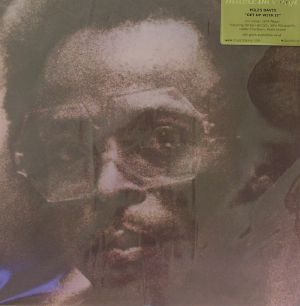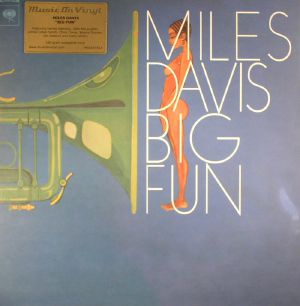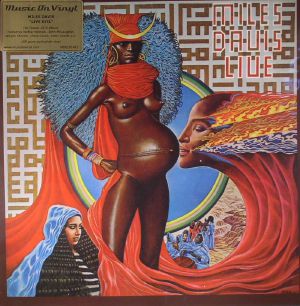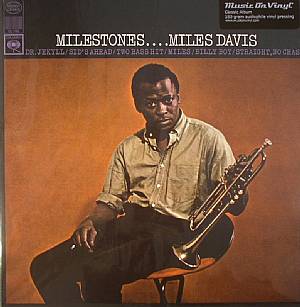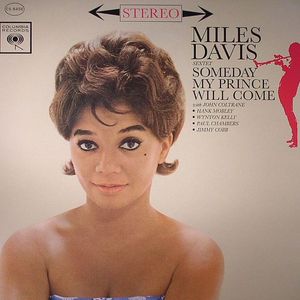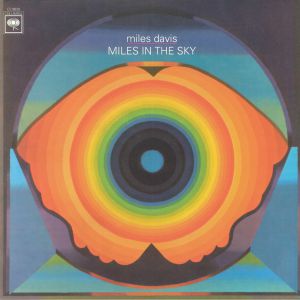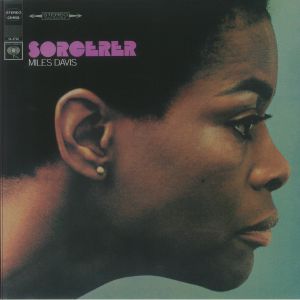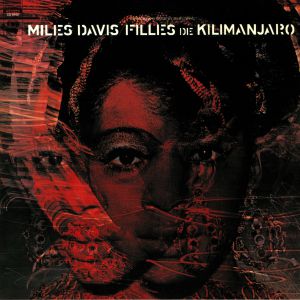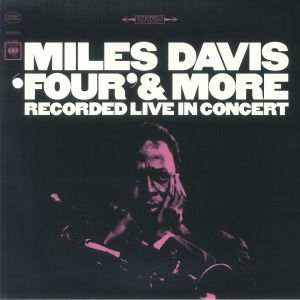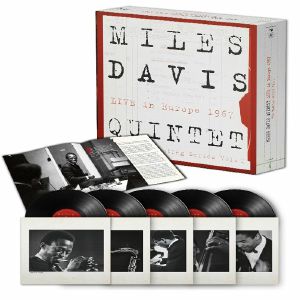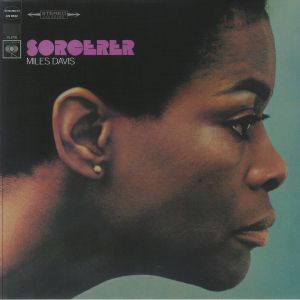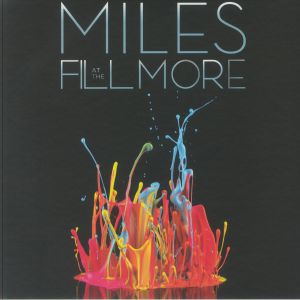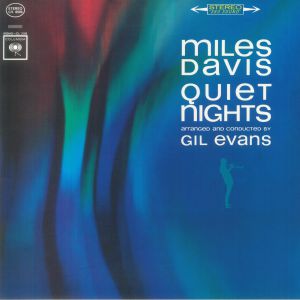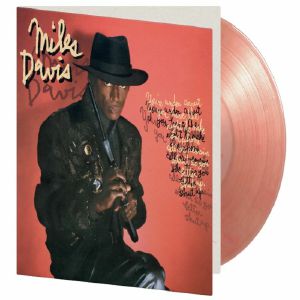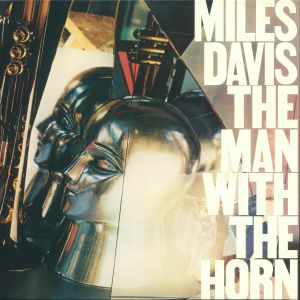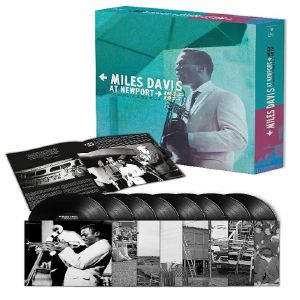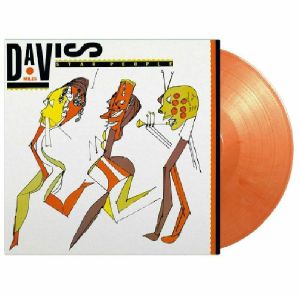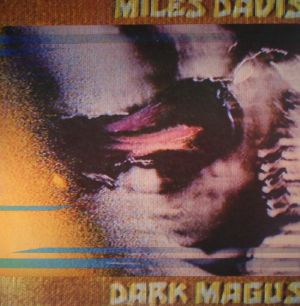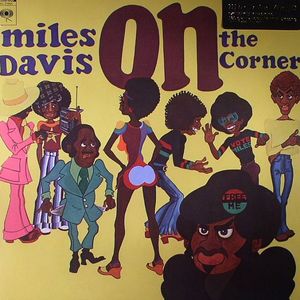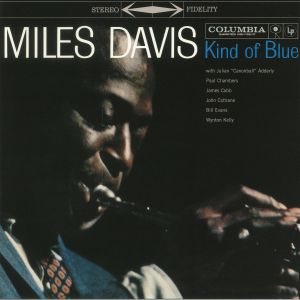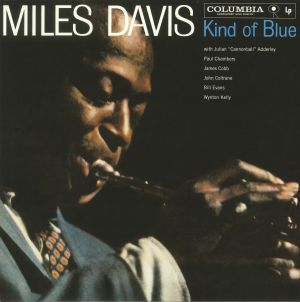Receive new release alerts for Music On Vinyl
Filter
Genre
Type
音楽
フォーマット
アーティスト
Featured
リリースタイトル
値段
Music On Vinyl レコード& CD
Browse the latest Vinyl & CD releases on Music On VinylSimilar labels:
1~22/22(ページ1/1)の商品
in stock $40.50
in stock $36.89
in stock $35.79
Played by: Juno Recommends Jazz
in stock $30.23
in stock $23.39
Played by: Juno Recommends Jazz
in stock $31.90
in stock $29.13
Played by: Juno Recommends Jazz
in stock $33.27
'Four' & More: Recorded Live In Concert (reissue) (180 gram audiophile vinyl LP)
Cat: MOVLP 1867. Rel: 13 Nov 24
Jazz
Review: Recorded at the same February 12, 1964 New York concert as My Funny Valentine, Four & More showcases the Miles Davis Quintet at their fiery best. The group, barely a year old at the time, pushed tempos from breakneck to blistering. The album features a balanced yet reconfigured set, including hard-bop staples like "Four" and "Walkin'," free-bop originals such as "Joshua" and "Seven Steps to Heaven," and the rarely performed standard "There Is No Greater Love." Spurred by Herbie Hancock, Ron Carter, and the prodigious 18-year-old drummer Tony Williams, Davis' upper-register playing is commanding and George Coleman's saxophone work is exceptional throughout.
… Read more in stock $28.01
Played by: The Jazz Meet
in stock $35.49
Live In Europe 1967:The Bootleg Series Vol 1 (180 gram audiophile vinyl 5xLP box set + booklet)
Cat: MOVLP 421B. Rel: 20 Aug 24
Jazz
Review: Miles Davis' The Bootleg Series, Volume 1: Live in Europe 1967 is a monumental release, capturing the essence of one of jazz's most legendary ensembles. This 5xLP box set from Columbia/Legacy, featuring 180-gram audiophile vinyl, showcases previously unreleased live performances by Davis' second great quintetiWayne Shorter, Herbie Hancock, Ron Carter, and Tony Williams. The set documents five concerts from October and November 1967, a transitional period in Davis' career. While this quintet never achieved the pop-cultural impact of Davis' earlier or later groups, their work during this era remains highly influential. The recordings reveal a band pushing the boundaries of bebop with exhilarating spontaneity and creativity. Tony Williams' dynamic drumming is particularly noteworthy, adding intense energy to tracks like 'Footprints,' while Hancock's innovative piano work and Shorter's probing saxophone contribute to the band's distinctive sound. Live in Europe 1967 represents a crucial moment before the group's shift to electric jazz, epitomising the quintet's mastery of live improvisation and interaction.
… Read more in stock $104.01
Sorcerer (reissue) (limited numbered 180 gram audiophile clear vinyl LP)
Cat: MOVLP 1865T. Rel: 13 Feb 24
Jazz
Review: In a discography that is jam packed with high quality albums, Miles Davis's Sorcerer is one of the standouts. Now newly reissued by Music on Vinyl, it transports listeners into the heart of 1967's avant-garde jazz landscape when it was originally released as part of Davis's Second Great Quintet era. The music showcases the maestro's pioneering fusion of modal jazz and free improvisation from the enigmatic title track to the haunting Prince of Darkness. Davis and his ensemble craft a sonic tapestry that mesmerises with every note here and Wayne Shorter's evocative saxophone, Herbie Hancock's masterful piano, and Tony Williams's dynamic drumming all help make that so.
… Read more in stock $33.56
Miles At The Fillmore: The Bootleg Series Vol 3 (180 gram audiophile vinyl 6xLP box set + booklet)
Cat: MOVLP 1051B. Rel: 20 Aug 24
Jazz
in stock $115.66
Review: 1977's Quiet Nights is one of legendary American jazz figure Mile Davis' lesser known albums. It's not Bitches Brew or Kind of Blue, but it is a delightfully easy to listen work, with references taken from Brazilian folk on 'Prenda Minha' which actually gets renamed 'Song #2' here, or Spanish classical on 'Adelita' which was written by the pioneering Francisco Tarrega and is here called 'Song #1' .There are also some woozy ballads and standout big band jam 'Summer Night.' This reissue comes on heavyweight vinyl and is a great reminder of the range of the influential jazz legend.
… Read more in stock $36.33
You're Under Arrest (reissue) (limited numbered gatefold 180 gram audiophile red & clear marbled vinyl LP)
Cat: MOVLP 3823C. Rel: 29 Oct 24
Jazz
in stock $29.13
The Man With The Horn (reissue) (limited numbered 180 gram gold & black marbled vinyl LP)
Cat: MOVLP 3759C. Rel: 24 Sep 24
Jazz
Review: Predating Herbie Hancock's landmark electro experiment 'Rockit' by two years, this 1981 album from the legendary Miles Davis may reference his his 1952 10" LP Young Man With A Horn in its title, but there's nothing traditional or retro about its sound. Having been tempted out of a six year hiatus by his nephew Vince Wilburn, Miles incoporated brand new synth and programming technology into his sound and elements of funk, soul and fusion jazz into the finished article, which features both tracks with Wilburn's band and others featuring saxophone player Bill Evans, bassist Marcus Miller and drummer Al Foster. It's not your average Miles album by a long chalk, but quite a fascinating insight into how the legend refeused to rest on his creative laurels all the same.
… Read more in stock $29.13
At Newport 1955-1975: Bootleg Series Volume 4 (180 gram audiophile vinyl 8xLP box set + 12 page booklet + poster)
Cat: MOVLP 1500B. Rel: 20 Aug 24
Jazz
Review: The Moon and the Melodies, a collaboration between Cocteau Twins and ambient pioneer Harold Budd, stands as a unique gem in both artists' discographies. Originally released in 1986, this ethereal album is now being reissued on vinyl, remastered from the original tapes by Robin Guthrie. Unlike anything else the Cocteau Twins ever produced, this record blends their dreamlike soundscapes with Budd's serene, improvisational piano work. The result is an atmospheric journey, at once intimate and expansive. Tracks like 'Sea, Swallow Me' shine with Elizabeth Fraser's otherworldly vocals, intertwined with Guthrie's shimmering guitar and Raymonde's grounding bass, creating a sound that feels both familiar and entirely unique. Instrumentals like 'Memory Gongs' and 'The Ghost Has No Home' highlight Budd's delicate piano, enhanced by the band's signature ambient textures. The album is a study in contrasts, vocal tracks sit alongside instrumentals, each contributing to a cohesive yet diverse listening experience. For fans, this reissue is a chance to revisit a pivotal moment in the evolution of dream pop and ambient music. The album's enduring appeal is evident in its continued influence in social media. The Moon and the Melodies remains a shining light that can happen when artists from different realms come together to create something truly timeless.
… Read more in stock $151.98
Star People (reissue) (limited numbered 180 gram audiophile orange & white marbled vinyl LP)
Cat: MOVLP 3764C. Rel: 11 Sep 24
Jazz
Review: Star People by the legendary Miles Davis stands as a distinctive piece in his extensive discography, marking both beginnings and endings in his career. Notably, it introduces electric guitarist John Scofield, who was recommended by saxophonist Bill Evans, and features bassist Marcus Miller on several tracks. The album also signifies the final collaboration between Davis and longtime producer Teo Macero, as well as his last work with the renowned Gil Evans. This album showcases Davis's innovative spirit, particularly on the 18-minute title track, where he plays trumpet and Oberheim synthesiser simultaneously, creating an expansive blues composition without overdubs. The rhythm section, featuring guitarist Mike Stern, drummer Al Foster and percussionist Mino Cinelu, complements Davis's explorations with a dynamic groove. Star People also features live recordings like 'Come Get It' and 'Speak,' highlighting the energy of Davis's performances while pushing the boundaries of the LP format. The album's front cover, adorned with Miles's own artwork, and liner notes by jazz critic Leonard Feather, add depth to this unique release, and for fans of Davis's work from this era, Star People is a compelling listen with the innovative appeal of his late-career experiments.
… Read more in stock $29.13
Dark Magus (remastered) (gatefold 180 gram audiophile vinyl 2xLP)
Cat: MOVLP 1454. Rel: 17 May 16
Jazz
Played by: Juno Recommends Jazz
in stock $35.49
in stock $34.39
Played by: Juno Recommends Jazz, Dan HabarNam
in stock $38.55
! low stock $32.72
1~22/22(ページ1/1)の商品

 USD
USD





